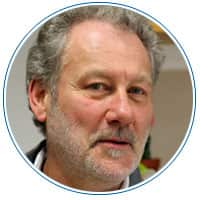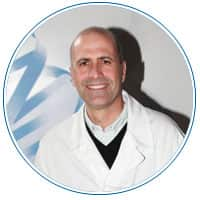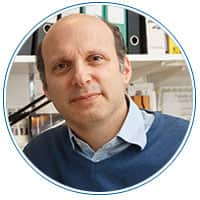Nobel Prize 2016 Interviews: What do autophagy’s leading scientists have to say about this year’s Nobel Prize and its recipient?
The 2016 Nobel Prize in Physiology or Medicine was awarded to Dr. Yoshinori Ohsumi for his discoveries of mechanisms of autophagy
We interviewed leading scientists in the field of autophagy from around the globe to learn more about Dr. Ohsumi, his groundbreaking work, and what his contributions mean to the field of autophagy. Here’s what autophagy’s opinion leaders have to say about this year’s Nobel Prize recipient.
Dr. Ohsumi’s early scientific discoveries elucidated mechanisms regulating the cellular process of autophagy: a process for degrading and recycling cellular components. His seminal work led to a new paradigm to understand how a cell recycles its contents and laid the groundwork for future studies on the role of autophagy and its link to diseases ranging from cancer to neurodegeneration.

"I can think of no one more highly deserving of the Nobel prize than Yoshimori Ohsumi. His discovery of the molecular machinery and bmarginiochemical mechanisms of autophagy in yeast revolutionized the field of autophagy research. It opened the door to genetic studies in multicellular organisms which established the essential roles of autophagy in normal physiology and in protection against numerous diseases, including cancer, aging, infections, neurodegenerative disorders, and diabetes. This work is now leading to intense efforts to target autophagy in the treatment of human diseases."

"The discovery of the autophagy genes by Yoshinori Ohsumi in the mid-90 was a milestone in the field of macroautophagy. It opens the door to our knowledge of the molecular machinery of autophagy and to the fascinating role of autophagy in physiology and immunology. This discovery also paved the way for new avenues in the understanding of human pathologies and promising novel therapeutic approaches."

“This is truly a well-deserved honor for Dr. Ohsumi, and recognition of the importance of autophagy as a biological recycling process in health and disease. Pathologists have known for many years that autophagy is a fundamental response of cells to stress and injury, observed in innumerable human disease states. Dr. Ohsumi’s discoveries of the molecular interactions regulating autophagy are not only elegant in their own right, but also opened the door for an explosion of research on how autophagy influences cell survival and cell death, differentiation and degeneration. Our growing understanding of an unanticipated level of selectivity in how specific mitochondria, protein aggregates or transcription factors are targeted for degradation could not have occurred without his discovery of the covalent lipidation reaction. To top it off, Dr. Ohsumi is kind, approachable and insightful.”

“Let me start by saying that this is incredibly well-deserved. Prof. Ohsumi pioneered studies on autophagy in yeast, discovering the first 15 main genes (ATG) regulating the process. Before Prof. Ohsumi’s molecular characterization, few scientists would have envisioned a pro-survival role for autophagy. The present Prize recognizes once again the importance of basic research, and highlights one of the last discoveries of a completely new concept in cellular biology.
Surprisingly enough, individual ATG genes discovered by Prof. Oshumi in yeast may play additional or more complex roles in other systems, and may be controlled by multiple protein complexes or lipids both in physiological and pathological conditions. Future perspectives include deeper study of the contribution of single autophagy regulators (or even single protein modifications) to autophagy initiation and progression, and their intense cross-talk with other sub-cellular pathways, such as cell mobility or cell cycle.”

“I am delighted that Dr Yoshinori Ohsumi won this year’s Nobel Prize in Physiology or Medicine. His pioneering work in yeast led to the discovery of the key genes and fundamental biochemical processes that are required for autophagy. As autophagy is well conserved from yeast to man, his laboratory’s discoveries have also provided the critical tools to many labs to enable the appreciation of the important roles of autophagy in diverse physiological and disease processes, including infectious diseases, cancers and various neurodegenerative diseases. Indeed, autophagy manipulation may be a therapeutic strategy for some of these conditions.”